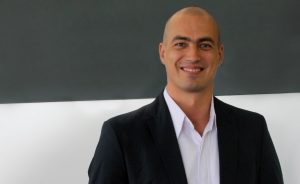Austrian public broadcaster ORF moves to new studio control system from Qvest Media
Austrian public broadcaster ORF has chosen systems architect and ICT integrator, Qvest Media, to equip the station with new studio automation systems.
Qvest Media is set to integrate automation solutions tailored to the broadcaster’s work processes for the control of five studios at the ORF centre in Vienna.

ORF’s Wolfgang Gaertner
“The new studio automation system will enable our editing teams to adapt the process of a live broadcast in a straightforward way and insert breaking news items, for example, into an ongoing news bulletin with virtually no need for forward planning. One of the core goals is for the integration by Qvest Media to accelerate and complement our editorial workflow so that ORF will in future be able to step up the flexibility and quality of its studio productions,” said Wolfgang Gärtner, senior project engineer at ORF. “In particular when transmitting live sports events, the new studio automation system will help us optimise editorial and production-related workflows.”
He went on: “Our viewers in Austria are extremely interested in sports and are very much into skiing, football and tennis. In addition to premium sport, ORF’s special-interest channel Sport+ covers a large range of sports events and niche sports. Thanks to the automation solution implemented by Qvest Media, our teams can precisely determine editorial and technical requirements with varying degrees of gradation and define an appropriate operating model,” Gärtner concluded.
As the general contractor, Qvest Media will be taking care of all tasks relating to the planning, delivery and implementation of new hardware and software components for the introduction of studio automation at ORF. In addition to the technical integration into the existing studio infrastructure and connection to the Redsys editing system that ORF uses from APA-IT, particular attention will be paid to ensuring the intuitive operability of the automation processes involved and their use in future editorial workflows.

Qvest Media’s Thomas Thal
To safeguard this point, Qvest Media’s subsidiary HMS media solutions is adapting its standalone, platform-neutral HMS DiSA Brick Controller to suit ORF’s requirements. It is embedding it as a technology layer between the editing system and the automation systems from Vizrt (Mosart and Opus). As a result, editors will be able to focus on creating articles and planning broadcasts in the editing system.
In the background, the Brick Controller will help ORF staff to ensure that every story within the broadcasting process is implemented correctly from a technical perspective without editors having to have any detailed specialist knowledge.
“In terms of the innovative Brick Controller concept, the ORF project demonstrates how important expertise in software development is in modern systems integration. Through the acquisition of the software developer HMS, we created strong foundations on which we will be able to build customised, future-ready and manufacturer-neutral solutions for our clients,” said Thomas Thal, head of key account management at Qvest Media.
Following successful commissioning and acceptance, Qvest Media is also responsible for training ORF staff and for the ongoing monitoring and update of the systems.
